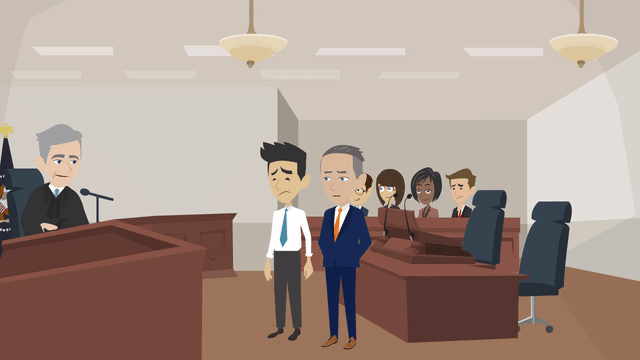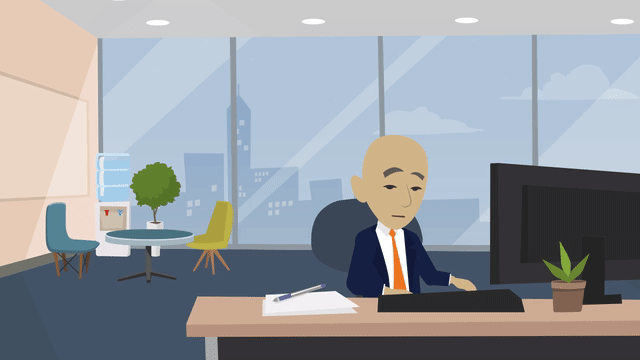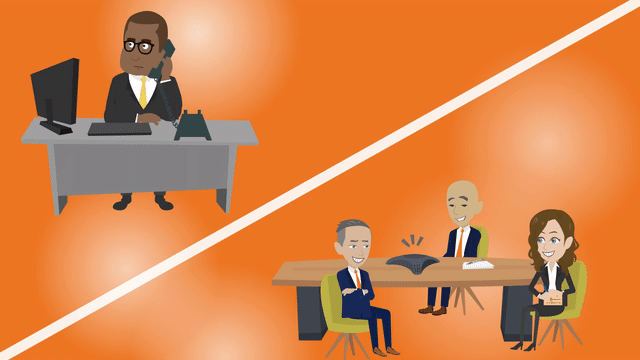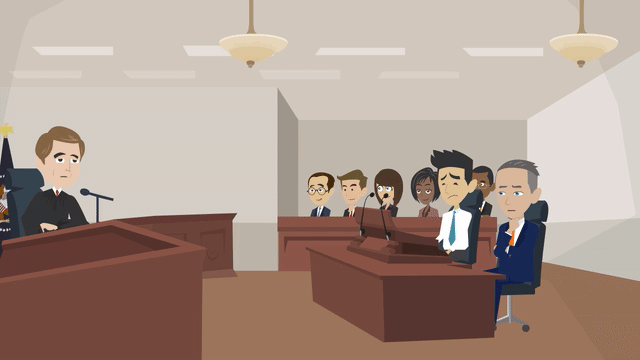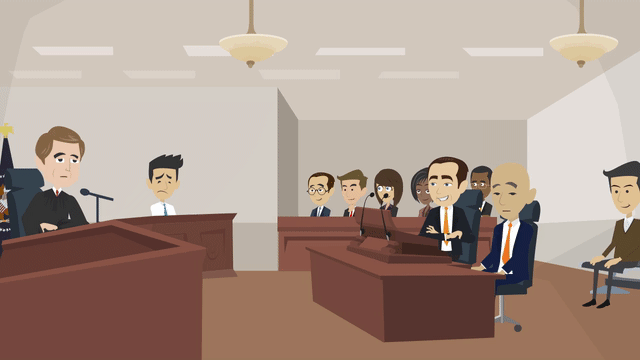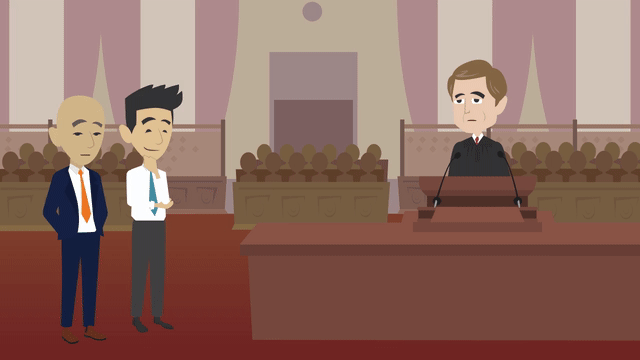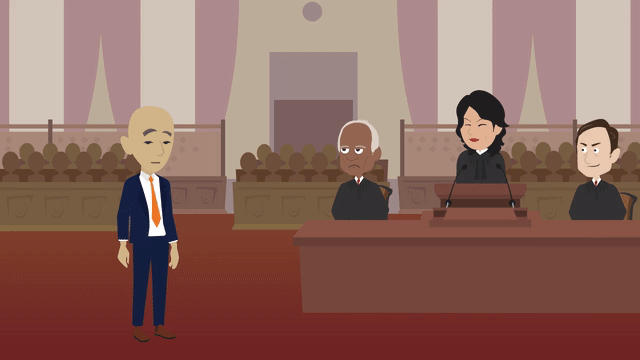Driving While Intoxicated In New York
If you are charged with an alcohol or drug related offense—whether in a car, on a motorcycle, ATV, or other motor vehicle—there may be a serious impact on your driver’s license, your employment, and even your freedom. You likely have many questions and will need to understand many complicated issues that can result from an alcohol or drug related driving offense. New York state DWI laws are complex and each case has its own unique challenges. Your specific facts should be thoroughly reviewed in detail with a qualified and experienced DWI attorney familiar with the DWI laws in New York.
Frequently Asked Questions about DWI
Our criminal defense lawyers provide answers to some important questions below.
- Breath Test Refusal
- Conviction For DWI Or DWAI
- Drinking And Driving Under 21
- Driving While Under The Influence Of Drugs
- DWI And Commercial Driver’s Licenses
- DWI And DWAI Alcohol Offenses
- Initial Questions After A DWI Arrest
Contact a DWI lawyer immediately. It is important to meet with a DWI attorney while the arrest is still fresh in your mind to ensure all the important facts—from the initial traffic stop, to any on-scene tests and statements, to the actual arrest—are documented. Depending on the circumstances, you may be facing penalties faster than you think, including serious license consequences at your arraignment or a DMV Hearing. It is best to retain a lawyer who specifically handles DWI cases to ensure all your rights are protected.
No. DUI or “Driving Under the Influence” is the terminology used in some states to describe a drunk driving charge. However, a drunk driving charge in New York is not referred to as DUI. Rather a DUI in New York is called DWI or “Driving While Intoxicated”.
A conviction for a DWAI/DWI offense can be very costly. Court fines, surcharges, and DMV fees can add up quickly.
For a first-time DWAI conviction, you face up to $500 in court fines plus another $255 or $260 in surcharges depending on whether your case in is a Town or Village Court. For a first-time DWI conviction , you face up to $1,000 in fines, with another $395 or $400 in surcharges. A conviction for Aggravated DWI could result in court fines up to $2,500 with $395 or $400 in surcharges. If you are convicted of a felony DWI you may have to pay up to $5,000 in fines plus almost $520 in surcharges.
In addition, there is a mandatory DMV Driver Assessment Penalty—regardless of the type of conviction—of $750. If you are eligible to participate in the Impaired Driving Program, it will cost approximately $300. If you are required to install the ignition interlock device (See below) you will pay nearly $100 to install the device and approximately $100 per month for maintenance, which is typically required for a minimum of one year.
These penalties do not take into account legal fees, lost wages, increased insurance premiums, or additional mandatory alcohol treatment if required.
Your first court appearance is known as the arraignment. At your first court appearance for a DWI charge, when you stand before the Judge, you and your DWI lawyer will enter a plea of Not Guilty to the charges. Additionally, at the first court appearance, the Judge is required to decide if your license should be suspended pending the prosecution of your case, under New York’s “Prompt Suspension Law”.
Maybe. New York has a “Prompt Suspension Law” which requires a Judge to suspend your license or operating privilege upon a finding that the charging documents are legally sufficient, and if there is a certified breath test result confirming your blood alcohol content (BAC) was .08 or greater. However, your DWI attorney may be able to challenge the findings made by the court and may also be able to obtain a hardship license for you to drive during the first 30 days after you are suspended pending prosecution. You should discuss whether there is a basis to continue to drive while your case is pending with your DWI attorney. If you are charged with a DWAI, your license will not be taken at the first court appearance.
Maybe. If the court takes your license at your court appearance, you may be entitled to request a “hardship license” if there are no alternative means of transportation to and from work, school or medical appointments. If eligible, your DWI attorney should apply to the court for a hardship license to ensure you can still drive while your case is pending.
A hardship license is issued by a court after your license has been suspended pending prosecution for a DWI. A hardship license will allow you to drive to and from work, to and from school, or to and from medical appointments only. This license cannot be used for recreation, grocery shopping, work related driving, or any other purpose.
If more than 30 days has passed since you appeared in court for your DWI charge, and if your case is still pending, you may qualify for a pre-conviction conditional license. This license allows a person to drive not only to and from work, school or medical appointments, but also during the course of your business hours for work or school related purposes, and for a 3 hour time period on a non-work day. It is not necessary that you participate in any drinking or driving program to qualify for this license. If you have not been convicted of the DWI charge and your case is still pending, and if more than 30 days have passed since your arraignment, and assuming you have no other suspensions or revocations on your license, you may go to the DMV to apply for this license.
It is difficult to predict how long your DWI case will take and it can often depend on the location of the offense, whether there was an accident or injuries that resulted, and whether you have a prior record. In some instances, a DWI charge can be resolved at the first court appearance and in other cases it can take a year or longer to resolve a DWI case. You should talk to your DWI attorney about your particular case to get a better understanding of how long your case may take. Some counties have DWI policies with respect to the resolution of DWI cases which can add time to the process.
No. Unfortunately the time before any conviction does not count toward a suspension or revocation you may face if you are ultimately convicted of DWI.
Maybe. If you have not been convicted of a DWI in the past 5 years and have not been convicted of 2 DWIs in the last 25 years, you are likely eligible to obtain a conditional driver’s license if you are convicted of a DWAI or DWI offense. In order to drive after a DWAI or DWI conviction, you must participate in an Impaired Driving Program.
The Impaired Driving Program is a 7-week course offered by the department of motor vehicles (DMV) only to people who have been convicted of DWAI or DWI. You cannot take this program unless you have been convicted of DWAI or DWI. The program meets 1 time per week for approximately 2 hours per session. By participating in this program, you may be eligible to apply for a conditional driver’s license which will allow you to drive after your conviction if eligible. Completion of this program may also allow you to obtain your full license faster than the normal suspension or revocation period.
No. Only people who have been convicted of DWAI or DWI can enroll in the Impaired Driving Program.
A conditional driver’s license allows a person who has been convicted of DWAI or DWI to drive under certain conditions during the period of their license suspension or revocation. A conditional license holder can drive to and from work, during the course of their business hours, to and from school, to and from the DMV and any DMV sponsored activities, to and from medical appointments and for a 3 hour time period on a non-work day. A driver may be eligible for this license after a drinking and driving related conviction by participating in the Impaired Driver Program.
A victim impact panel is a 2-hour panel discussion where individuals who had lost loved ones speak to the audience about the impacts drinking and driving has had on their lives and/or the lives of their family members. The goal of the panel is to serve as a deterrent for the audience members from ever getting behind the wheel after drinking. There is typically a fee of up to $50 to attend the panel. Audience members are tested for the presence of alcohol before being allowed to enter. If any alcohol is detected, admission to the panel is denied.
An IID is a breath test device that is installed in your personal vehicle. It requires the driver to blow into a device each time the vehicle is started. It also requires regular re-testing of the driver while the vehicle is in motion. The device must be installed by an approved vendor at a cost of approximately $100. The device must be maintained at a monthly cost of approximately $100.
If you are convicted of any misdemeanor or felony DWI, pursuant to DMV rules, an IID will be required to be installed in your vehicle. For a misdemeanor, the IID will be ordered for one year, but you can seek a court order for the removal of the IID after 6 months. For a felony DWI conviction, the IID will need to remain on your vehicle for at least a year.
If you receive a sentence of probation, it can range anywhere from 1 to 5 years for a DWI offense. You will likely have to comply with the following terms and conditions of probation:
- Report to probation as directed
- Remain within the jurisdiction of the court unless granted permission to travel
- Remain arrest free
- Do not drive unless your license is valid, and probation and the Judge have granted you permission to drive – even if DMV says you may drive
- If allowed to drive, maintain an ignition interlock device on your vehicle – even beyond the normal time frames
- Comply with any alcohol or drug treatment
- Do not consume any drugs or alcohol
- Maintain employment or go to school
- Do not possess any firearms or other weapons
Stay Away from Bars or Taverns
Yes. Even though you may be facing a 6 month or 1-year license revocation according to the DMV, the judge and/or the probation department can prevent you from driving for longer as a term and condition of your probation. Therefore, even if you are eligible to get your license back according to the DMV, if you are on probation, it must be approved by the probation department and/or the Judge first.
Forever. Whether you were convicted of a DWAI, DWI, or Aggravated DWI, the convictions remain on your criminal history report forever. You may wish to obtain a lifetime abstract from DMV, which contains all convictions for the duration of your driving history in New York state. In New York State, there is a 25 year look back on your driving record where prior DWAI/DWI convictions can affect whether you are eligible to obtain your license back.
Yes. If you are convicted of DWAI, DWI, or Aggravated DWI in New York, whatever consequences are imposed on your ability to drive will carry into any other state. If you are issued a conditional license in New York, those conditions are applicable if you are driving in any other state. Once you have successfully fulfilled your obligations regarding your DWI in New York state, you may apply for a license in another state. However, that state has the discretion to approve or deny your license application. Many states have reciprocity and recognize convictions in other states. If you have not completed the obligations to obtain a clear New York license, you will likely be denied a license in another state.
No. DWAI in violation of vehicle and traffic law 1192(1) is a violation and is not a misdemeanor or felony. While its penalties can still be severe, if this is your only conviction, and if you are asked if you have been convicted of a crime, your answer is no.
If you are convicted of DWAI, you face a license suspension of 90 days, a maximum fine of $500, plus a mandatory court surcharge of $255 or $260 depending on the court of conviction. You also face up to 15 days in jail. Finally, if you are convicted of DWAI, you must pay the DMV a mandatory Driver Assessment Penalty of $750. An important benefit of a DWAI conviction is not having a mandatory IID installed in your vehicle.
If you are convicted of a first-time DWAI offense, your license is suspended for 90 days.
If you have been convicted of a DWAI or DWI offense, and if you are eligible for a conditional license, a judge may agree to delay the license suspension or revocation for up to 20 days following the conviction. This 20-day delay allows you time to obtain your conditional license. During the 20 day stay of your suspension or revocation, you can drive without any license restrictions. However, once the 20 days is over, your suspension or revocation takes effect. However, if you enroll in the Impaired Driving Program before the 20-day period ends, you will be able to drive with a conditional license. As a result, with a DWAI or DWI conviction, it is possible that you will always have some type of driver’s license during your case.
Yes. A first time DWI conviction under vehicle and traffic law 1192(2) or 1192(3) is a misdemeanor. If you have one or more prior misdemeanor convictions within a 10-year time frame from your last conviction, you will likely be charged with a felony.
In New York State, Driving While Intoxicated (DWI) is a misdemeanor, and is charged when a person operates a motor vehicle in an intoxicated condition or with a blood alcohol content (BAC) of 0.08 or greater. If this is your first DWI conviction your license will be revoked for a minimum of six months. For a first-time DWI offense, you will be charged up to $1,000 in court fines, with another $395 or $400 in surcharges depending on the court of conviction. You also face up to 1 year in jail or up to 3 years of probation. In addition, there is a mandatory DMV Driver Assessment Penalty of $750. If you are convicted of DWI you must install an ignition interlock device in any vehicle you own or operate for 1 year.
If you are convicted of a first-time DWI offense, your license will be revoked for minimum of six months. After the revocation period, you must reapply for a NY License and cannot simply reinstate your previous license. Importantly, if your conviction results in a sentence of probation, your probation officer or the Judge, not the DMV, has the final discretion as to whether you will be allowed to apply for a new license upon successful completion of the 6 month revocation period. Based on your prior record, you may be eligible for a 20 day stay of your revocation and a conditional license which would allow you to maintain some driving privileges throughout your case.
Yes. A person convicted of a first-time DWI faces up to one year in jail and/or three years’ probation.
Yes. If you are convicted of DWI, Aggravated DWI, or a Leandra’s Law violation (See below), you will be required to install an ignition interlock device on any vehicle that you own or operate. This is a sentencing requirement and not able to be negotiated away. While the length of time may be somewhat modified, there is no ability to completely avoid it. On the other hand, if you are convicted of DWAI, or DWAI drugs, you will not be required to install an ignition interlock device.
In order to be charged with a felony DWI you must have at least 1 prior conviction for either a misdemeanor or felony DWI within the last 10 years. You can also be charged with a felony if you operate a vehicle with a BAC of .08 or more and have a child in the car. Driving While Intoxicated with a child in the car is known as Leandra’s Law.
If you are convicted of a Felony DWI, you will lose your driver’s license for at least 1 year. You also face up to 4 years in prison and/or up to 5 years of probation. The court will impose a maximum fine of $5000 and a surcharge of $520. The Department of Motor Vehicles (DMV) will require an alcohol evaluation or rehabilitation before re-licensing you. In addition, there is a mandatory DMV Driver Assessment Penalty of $750. You must install an ignition interlock device into any vehicle you own or operate. If the prior conviction was within the last 5 years of a prior DWI conviction you also will be required to serve a jail term of 5 days or, in the alternative, perform 30 days of Community Service for a public or not for profit corporation.
In NY, driving while intoxicated with a child in the car is a felony charge if the motorist has a blood alcohol content (BAC) of .08 or greater and has a child under the age of 16 in the vehicle. This offense, known as a Leandra’s law violation under vehicle and traffic law 1192(2-a)(b), is punishable by up to 4 years in prison and/or up to 5 years of probation and a fine of up to $5,000.00 plus almost $520 in surcharges. For a first-time Leandra’s Law violation, your license will be revoked for a minimum of one year. In addition, there is a mandatory DMV Driver Assessment Penalty of $750. If you are convicted of violating Leandra’s Law, you must install an ignition interlock device in any vehicle you own or operate for at least 1 year.
Aggravated DWI is a misdemeanor pursuant to vehicle and traffic law 1192(2-a)(a) and is charged when a person operating a motor vehicle has a blood alcohol content (BAC) of .18 or greater.
For a first-time Aggravated DWI violation, your license will be revoked for a minimum of one year. You face up to 1 year in jail and/or up to 3 years of probation. Aggravated DWI court fines can be up to $2,500 with $395 or $400 in surcharges depending on the court of conviction. In addition, there is a mandatory DMV Driver Assessment Penalty of $750. If you are convicted of Aggravated DWI, you must install an ignition interlock device in any vehicle you own or operate for 1 year.
For a first-time Aggravated DWI, your license will be revoked for a minimum of one year. However, if this is your first alcohol related conviction, you may be eligible for a conditional license by enrolling in the impaired driver program.
A first-time conviction for driving under the influence of drugs, under vehicle and traffic law 1192(4), will result in a license revocation for a minimum of six months. You face up to $1,000 in court fines and will have to pay $395 or $400 in surcharges depending on the court of conviction. You also face up to 1 year in jail and/or up to 3 years of probation. In addition, there is a mandatory DMV Driver Assessment Penalty of $750. You will not be required to install and ignition interlock device into any vehicle you own or operate.
Driving while your ability is impaired by the combined influence of drugs and/or alcohol is found under vehicle and traffic law section 1192(4-a). If you are convicted of this offense, it is a misdemeanor and your license will be revoked for a minimum of six months. You will be fined up to $1,000 and will be required to pay another $395 or 400 in court surcharges depending on the court of conviction. You also face up to 1 year in jail and/or up to 3 years of probation. In addition, there is a mandatory DMV Driver Assessment penalty of $750. You must install an ignition interlock device on any vehicle you own or operate for 1 year.
Yes. Even if your medication was prescribed you can still be charged and convicted of a driving-under-the-influence of drugs if the prescription caused you to be impaired while you operated your vehicle
If you are a commercial driver and are convicted of DWI while driving your personal vehicle, your commercial driver’s license will be revoked for a minimum of one year.
In New York, pursuant to vehicle and traffic law 1192(5), it is illegal to operate a commercial vehicle if your blood alcohol concentration (BAC) is .04% or more. If you are convicted of driving a commercial vehicle with a BAC of .04% or higher, you will lose your CDL for at least one year for a first offense. You will lose your CDL for at least three years if the offense occurs while you are operating a commercial vehicle that is placarded for hazardous materials.
The consequences to a person who is under 21 will differ based on whether the conviction is for a Zero Tolerance Violation, Driving While Ability Impaired (DWAI), or Driving While Intoxicated (DWI).
A zero-tolerance violation may be charged when a person under 21 drives a motor vehicle with a blood alcohol content (BAC) between .02 and .07. A conviction for this offense is civil in nature, and therefore does not result in a criminal conviction. If convicted of this offense the under 21 motorist faces a license suspension of 6 months and a civil penalty of $125.
A DWAI violation may be charged if the BAC is between .06 and .07. A conviction for this offense is a violation and does not result in a criminal conviction. If convicted of this offense the under 21 motorist faces a 1-year license revocation, a maximum fine of $500, plus a court surcharge of $255 or $260 depending on the court of conviction. The motorist may also face up to 15 days in jail. Finally, there is a mandatory DMV Driver Assessment Penalty of $750.
A DWI violation may be charged if the BAC is .08 or greater. A conviction for this offense may result in a criminal record. If convicted of this offense the under 21 motorist faces a minimum 1-year license revocation, a maximum fine of $1000 and mandatory court surcharges of $395 or $400 depending on the court of conviction. The motorist also faces up to 1 year in jail and/or up to 3 years of probation. If the motorist is under 19, he may receive the benefit of being a “youthful offender” and the record may be sealed. There is a mandatory DMV Driver Assessment Penalty of $750. If you are convicted of DWI you must install an ignition interlock device in any vehicle you own or operate for 1 year.
Youthful offender applies to a person who is under 19 years old who has no prior felony convictions and has never before been treated as a youthful offender.
Youthful offender applies to a person who is under 19 years old who has no prior felony convictions and has never before been treated as a youthful offender.
Be wary of advice that says “never” or “always” submit to this test. There are numerous factors to consider when determining if a client should take a breathalyzer test or refuse the test. The important questions include:
- Whether you have a prior conviction for driving while intoxicated
- How many alcoholic beverages you’ve consumed
- Whether there was an accident
- Whether anyone was injured in an accident
- When the last alcoholic drink was consumed
- The county where you were arrested
All of these factors must be considered before a DWI lawyer can give advice about taking a breathalyzer test.
The consequences of refusing to take a breath test depends on what type of test you refused. If you refused to take a portable breath screening test (PBST), which is a handheld device most commonly administered at the time of the stop, this is simply a traffic ticket for which you may be fined by the court. On the other hand, if you refuse to take the breathalyzer test back at the police station, this is known as a chemical test refusal. A refusal to take a chemical test will result in the immediate suspension of your license or operating privilege at your first court appearance. However, you are entitled to a Department of Motor Vehicle (DMV) administrative refusal hearing within 15 days of your arraignment in court. If, at the DMV hearing, a judge determines you refused to take the test, your license will be revoked for 1 year and you will receive a DMV civil penalty of $500. If you have previously refused a chemical test your license will be revoked for at least 18 months and the DMV will impose a civil penalty of $750. You will also be responsible for a Driver’s Responsibility Assessment which is $750. This can be paid one time, or in three installments of $250.
Yes. The breath test administered at the side of the road is not a calibrated instrument and is only used to help establish probable cause for an officer to make an arrest. This breath test is called a “Portable Breath Screening Test” (PBST). If you refuse to take the PBST, you will be issued a traffic ticket only. Refusing to take the PBST will not result in a suspension of your license or driving privilege. On the other hand, the breath test administered at the police station, is a calibrated breath test instrument which will provide evidence to be used at a trial. If you refuse to take this test, your license or operating privilege will be suspended and potentially revoked for at least 1 year. Whether you should take either of the breath tests depends on a number of factors including the amount of alcohol consumed, over what period of time it was consumed, the county you are in, whether or not there was an accident, and whether or not you have any prior convictions for DWI or DWAI.
At a department of motor vehicles refusal hearing a judge will hear testimony from the arresting officer regarding your arrest. You may also testify, although you are not required to. This is a decision you should make with your DWI Lawyer. At a refusal hearing, the judge must consider the following:
- Did the police have reasonable grounds to believe that you were driving while under the influence of alcohol?
- Did the police make a lawful arrest?
- Were you given clear and sufficient warning that your refusal to submit to a chemical test would result in the immediate suspension and subsequent revocation of your license?
- Did you refuse to take the test?
If the Judge answers yes to all these questions, your license will be revoked for a minimum of 1 year and you will also be required to pay a DMV penalty of at least $500. If the judge answers “no” to any of these questions, your license will be returned.
Yes. It is highly recommended that you retain a lawyer to represent you at a refusal hearing. Although this is an administrative hearing and not a criminal proceeding, the consequences on your license are significant. Additionally, this hearing is an early opportunity for a lawyer to cross examine the arresting officer about what happened in your case.
These tests, commonly called the standardized field sobriety tests (SFST’s), which include the walk and turn, the horizontal gaze nystagmus, and the one leg stand, are not required by law. While refusal of the PBST (roadside breath test) is a traffic infraction, and refusal of the breathalyzer test has various penalties as listed above, refusing the field sobriety tests will not result in any punishment.
Possibly. If you have no prior conviction for drinking and driving in the past 5 years, you are eligible for a conditional license by participating in the impaired driving program.
Timeline of a Criminal Defense Case
- Whether you just made a big mistake, or are being falsely accused, this can be a very emotional and important time in a case
- It is very important that you remain silent and not answer any questions about the case without a lawyer present
- Contact a criminal defense attorney as soon as possible
- Confirm the lawyer is an experienced criminal defense lawyer
- Meet with the lawyer who will help you understand the process of a criminal case
- If you have been arrested, critical proceedings and time frames begin immediately
- You will appear before a judge who will determine if you will be incarcerated, released on bail or supervision, or released without conditions
- If you are charged with a felony in a town, village or city court, the prosecuting agency will have six months from the date of your arrest to determine whether to present your case to a grand jury to seek an indictment or return your case to a lower court to be handled as a misdemeanor
- Discovery is the exchange of information between the governmental agency prosecuting you, you, and your attorney
- In New York State this process begins shortly after your appearance in court
- You can expect exchange of the following if it exists in your case:
- Police Reports
- Investigative Notes
- Videos / Body Camera Footage / Dash Camera Footage
- Forensic Reports
- Photographs
- Exculpatory Material (Brady)
- Impeachment Material
- You and your attorney may also be engaged in information gathering that includes:
- Freedom of Information Law (FOIL) Requests/Responses
- Additional Witness Interviews
- Expert Evaluations / Disclosures
- Motions are written applications to the court to request any of the following:
- Preclude Evidence
- Suppress Evidence
- Seek a Ruling on a Constitutional Rights Violation
- Seek Outright Dismissal of One or More Charges Based on Legal/Factual Matters
- Request Hearings
- A plea bargain is an offer from the prosecuting attorney to resolve your case
- Whether to plead guilty or not is always a choice you get to make, not your attorney
- Your attorney will meet with you, discuss the facts and the law of your case, and offer advice. A plea offer takes into consideration your charges as well as:
- Prior criminal history if any
- Life experiences
- Evidentiary Problems
- Post-Incident Actions
- Mental Health Counseling
- Substance Abuse Treatment
- Anger Management Treatment
- If you choose not to accept a plea bargain and are heading to trial, there are likely to be hearings to consider the following:
- Preclusion/Suppression of Evidence
- Admissibility of Evidence
- What Prior Criminal History/Bad Acts May Be Introduced by the Prosecutor if You Testify on Your Own Behalf
- During a hearing, there is no jury, and the judge will make factual and legal determinations regarding what evidence will be allowed at trial.
- You have the right to a trial by a fair and impartial jury or by the judge who will act as both judge and jury
- At a trial, the prosecution has the burden to prove your guilt beyond a reasonable doubt
- The judge or jury will listen to the evidence presented and the arguments by the lawyers, apply the facts to the law, and render a verdict of not guilty or guilty
- A Verdict must be unanimous
- If you are convicted at trial, or if you entered a plea bargain, there will be a sentencing date where your punishment will be imposed by the judge
- If you previously entered a plea bargain, the judge will likely impose the agreed upon sentence at that time
- In the event you are convicted, you have the right to appeal
- This is true whether you plead guilty or are convicted after trial
- However, by accepting a plea bargain, you may have waived some of your appellate rights
- It is important that your attorney file a notice of appeal on your behalf and that you discuss the appeal process with your lawyer
LaMarche Safranko Law Testimonials
“Dear Andy,
Thank you so much for everything you have done for our son over the last three years. This has been a very challenging time for our family and the knowledge that our son has an attorney as capable and amazing as you are has given us peace of mind!
“Throughout the attorney client relationship regarding my personal injury lawsuit, George and his staff continually exhibited tremendous amounts of legal knowledge, skill, and a vast amount of expert resources that ultimately resulted in a final judgment in my favor. George was there every step of the way to explain where we stood and what to expect next and there was never a need to question his professional judgment…
“The staff at LaMarche Safranko Law took care of whatever I needed, it was just fabulous. It was top shelf, if I called, I got George. If he was in a meeting, they left him a message. He called me right back after the meeting. Everybody was very courteous and very nice there. If I left a voicemail, everybody got back to me quickly. The level of service was very, very good and I would Highly recommend them.”
“I am an attorney who found himself in the middle of a serious, personal legal matter that compromised not only my personal life but my professional life as well. I immediately contacted Andrew (Andy) Safranko, Esq. Andy worked tirelessly and extremely hard to bring my legal situation to a very favorable resolution. In so doing, Andy not only saved certain aspects of my personal and professional life…
“Dear George, Andy and Staff,
Thank you all for your kindness and all your help in getting back to my wellbeing and life. I could not have done it without you all. Everything is going so well again. I recommend you highly. Thanks Again!”
“I wanted to express my deepest appreciation to Mr. Andrew Safranko for the exceptional job he did in regards to my legal representation. Mr. Safranko displayed the utmost in professionalism and discretion during the entire court process, and took the time to explain each and every step….
“The arrest of my husband in 2008 was an extremely difficult and emotional time for our family. The arrest turned our lives upside down. It was sudden and unexpected and had tragic emotional as well as financial consequences. I had no idea what to do under the circumstances….
“I wanted to take this opportunity to thank you for your excellent representation on my recent matter. I have worked with lawyers, and in law firms much of my professional life, but I have never encountered the rare mix of skill, integrity and humanity in one individual—you….
“Dear Mr. Safranko,
Thank You so much for answering my question, and so expediently!
The dedication, respect, and consideration with which you treat your clients, current and past, is remarkable. It is why I reached out to you when searching in my time of need, and why I would highly recommend…
“No one likes to be in a bad situation, but if you need a lawyer George is your man. Not only does he point you in the right direction he offers good advice for your future. As much as we bring him business he does not encourage that next time anticipation….
“Dear Andrew and George,
I cannot thank you enough for your hard work, diligence, and selfless manner that you put towards my legal difficulties in Colonie. From the first moment I met you, you helped reassure me that things were going to turn out in a more favorable manner than I originally thought. Clearly, the final result of my court case displays the quality of time and work that you put into this….
“I cannot thank George E. LaMarche lll and his team for the excellent legal work they provided for my son, and in extension, our entire family. His experience, knowledge of the law, networking ability and communication is second to none. In our case, our son was wrongly accused by a small town police officer and charged with 5 tickets…
“I can honestly say that the best decision I’ve ever made was retaining George LaMarche as my attorney. I was in a situation where everything wasat risk; my career, livelihood, and the ability to provide for my family. In desperation, I contacted over a dozen attorneys. The majority of the lawyers I spoke with promised results without seeing paperwork or knowing valuable facts….
“My family and I cannot thank George and his staff enough for all of the support and guidance they have given us over the past six months. Anyone who has ever suffered a personal injury knows how difficult they are to overcome, but I’m glad we had such an intelligent and hardworking attorney on our side so I could focus on my recovery rather than on the details of the case….




